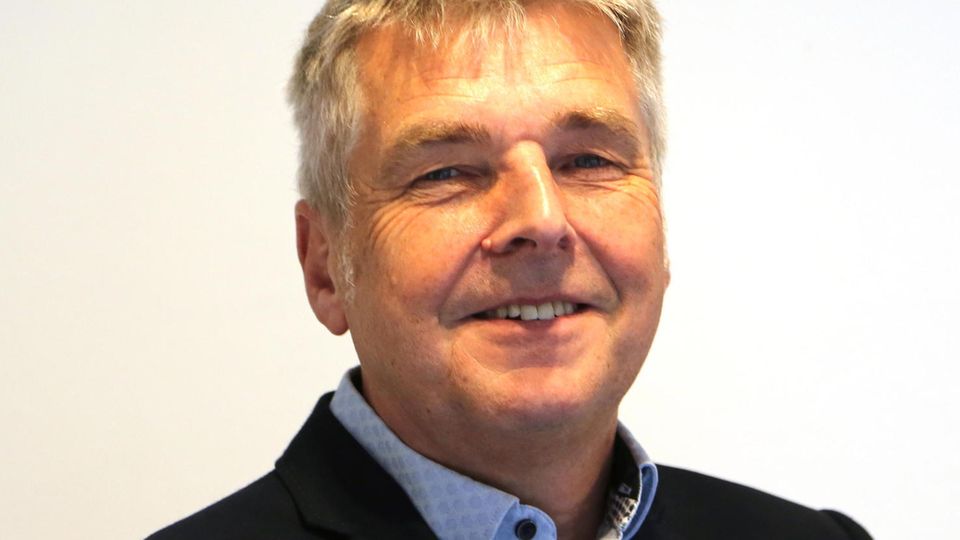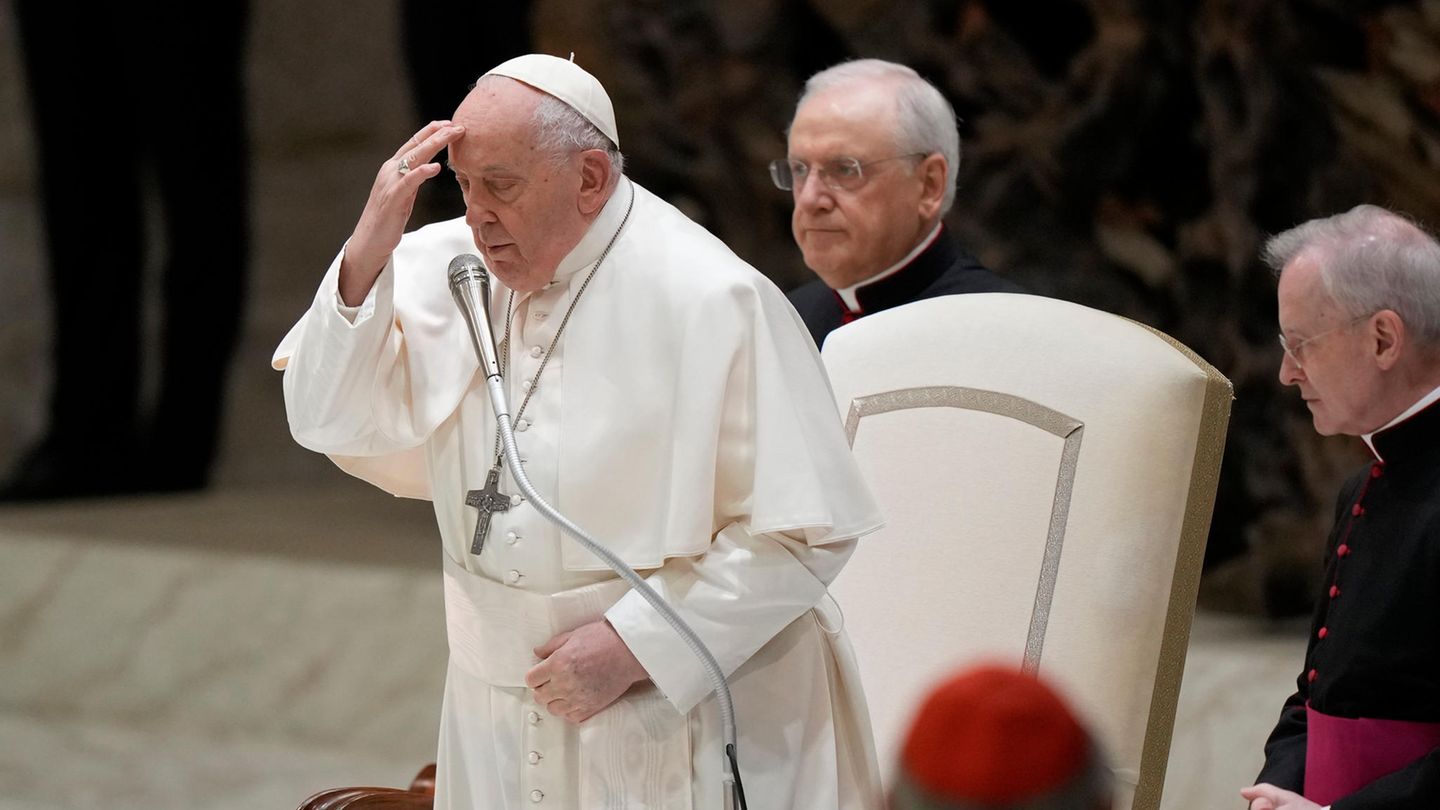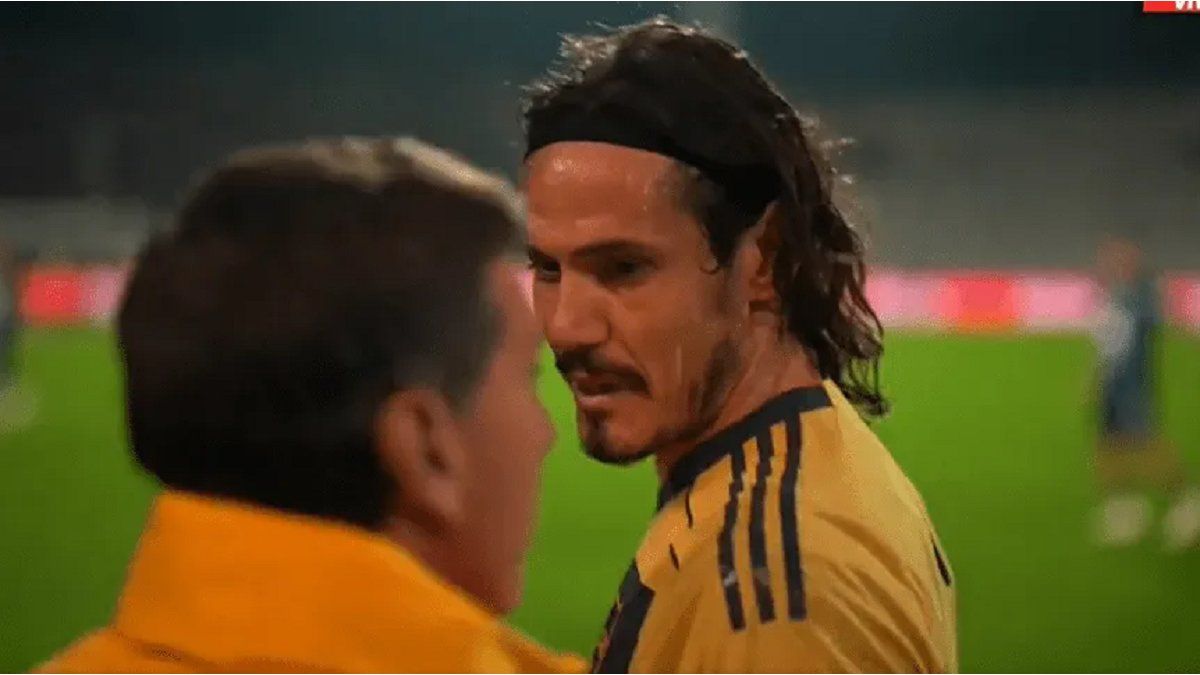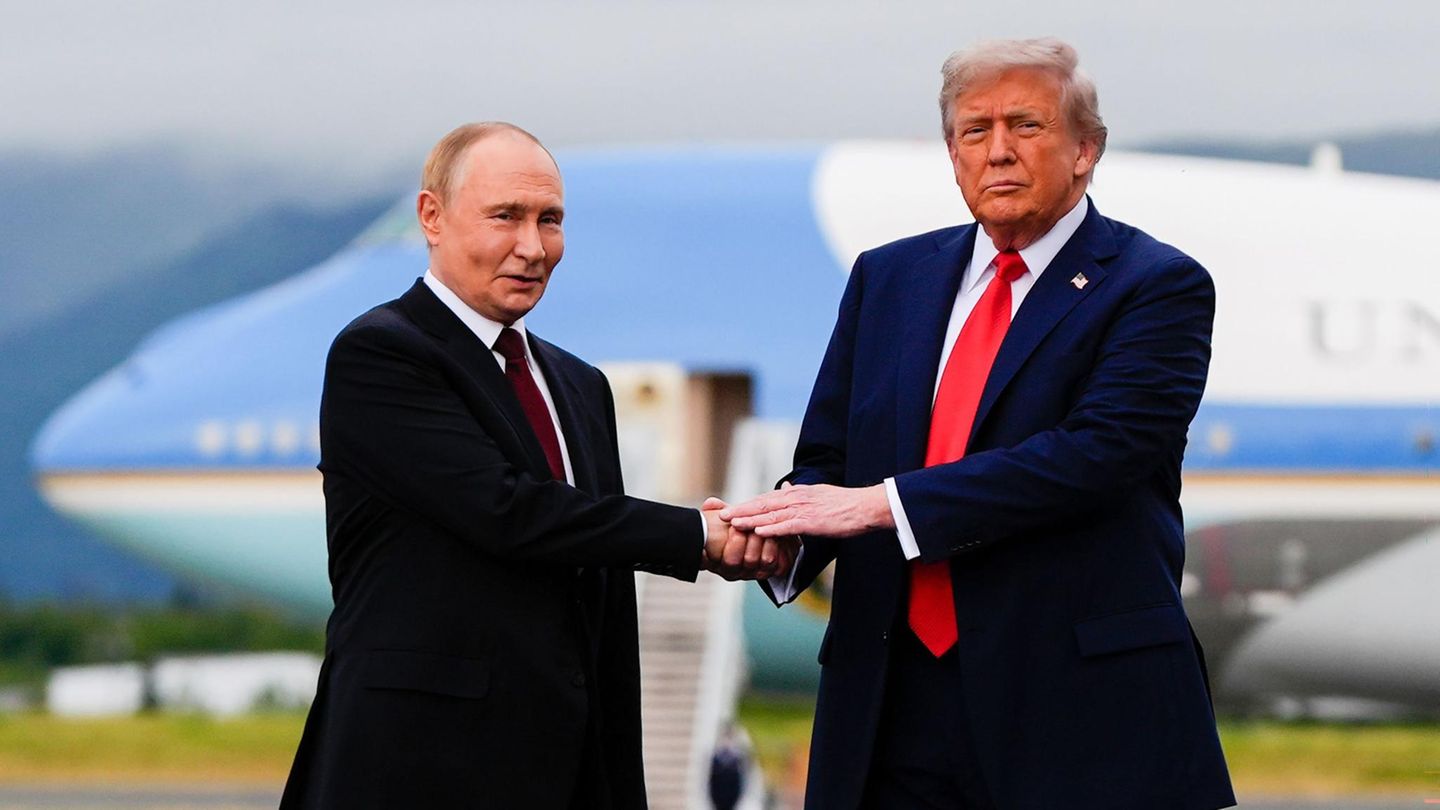Ceasefire in Ukraine? Pope Francis’ suggestion is irritating. An argument chat from the star-Editorial between a Protestant and a Catholic.
“When you see that you are defeated, that things are not going well, you have to have the courage to negotiate.” Sounds like a sentence from Sahra Wagenknecht, but it comes from Pope Francis. In an interview, the head of the Roman Catholic Church said “that the stronger is the one who recognizes the situation, who thinks of the people, who has the courage of the white flag to negotiate.” Wait, is the Pope advising Ukraine to surrender?
For Ukraine, that would mean “surrendering itself to its butchers without a fight,” he says star-Chief reporter and protestant Miriam Hollstein. starAuthor and Catholic Rolf-Herbert Peters counters: The Pope stands by the victims and all those “who are next in line without wanting war.”
Miriam Hollstein: I’m glad I’m not a Catholic!
Rolf Herbert Peters: And I’m glad that you’re a Protestant, because then as Christians we shouldn’t be so far apart in our assessment of wars.
Hollstein: My confirmation verse was from the Sermon on the Mount. “Blessed are those who make peace, for they will be called children of God.” We really agree on that. But it is not okay that the Pope is calling on Ukraine to hand itself over to its butchers without a fight.
Peters: Where exactly is the Pope supposed to have said that? He was just picking up on the words of the interviewer, who speaks of war-weary Ukrainians who, in their endless suffering, demand the “courage to surrender,” to raise the “white flag.” I would also like the Ukrainians to be able to chase the Russians out of the country with shouts of joy. For two years we have been told that this would be easy to do, we just had to supply enough weapons. And yet Ukraine is increasingly losing out. Most of us feel this, and more and more “experts” are saying it. In this situation, the Pope muses: “When you see that you are defeated, that things are not going well, you have to have the courage to negotiate. You are ashamed, but how many deaths will there be in the end? Negotiate in time, look for a country that mediates.” I don’t think that’s reprehensible, but rather a contribution to the debate. Admittedly, it was worded a bit sloppily.
Hollstein: “Sloppily worded” is, for my taste, a bit too indulgent for a man who knows that every public statement he makes to his flock is considered a kind of law, or at least a guideline. And: Jesus was always on the side of the weak. Why is there so little Pope Francis to be found there? Why doesn’t he call on Putin to stop the senseless killing? Why doesn’t he travel to Kiev?
Peters: Firstly, the Pope was and is always diplomatically active: Francis received Zelensky in the Vatican. He had also offered to meet with Putin’s patriarch Kyril at Moscow airport. In vain.
And quite fundamentally: In this case, Francis is exemplary on the side of the weak, namely the many mutilated or dead children and adults on both sides. And those who are next in line without wanting war. This is also why the Pope addressed Putin directly during the public prayer in St. Peter’s Square in October 2022 and asked him to “stop this spiral of violence and death, also for the good of his people.” At that time he also said: “On the other hand, while I am deeply saddened by the immeasurable suffering of the Ukrainian people as a result of the aggression they have suffered, I also confidently appeal to the President of Ukraine to be open to serious peace proposals.”
Hollstein: Okay. But “being open” is different than proactively raising “the white flag”. I also react so sensitively because the Catholic Church has a history: Pope Pius XII, who sent a telegram to Hitler urging him to make peace, but remained silent about the monstrous crimes. By the way, I am not alone in my lack of understanding of the Pope’s current statements. The German Bishops’ Conference also called her “unfortunate”. Heretically asked: Maybe he is no longer fit enough for the office?
Peters: Oh yes, the bishops’ conference, always quick to adhere to the prevailing opinion. This is a problem with the declining Catholic Church in Germany. It loses more and more of its profile instead of formulating a clear position. And: Well, the Nazi club! Sure, that was a dark point in the history of the church. I much prefer to think of Pope Pius XI’s courageous encyclical in 1937, which he wrote in German, “With Burning Concern.” In it he clearly condemns the politics and ideology of National Socialism. The paper was distributed secretly and at the risk of life in all dioceses and read aloud in all Catholic communities on Palm Sunday.

Hollstein: Yes, there were (and are) many courageous Catholics. And there were also brave people and followers in my church. But Pope Pius XII. wasn’t one of the brave ones, he didn’t risk anything. The “final solution” was decided in 1942; as soon as the first deportations became known, Pius Sturm would have had to preach against Hitler. Just as I would now expect Francis to repeatedly publicly call on Putin for peace. But he is your church leader. What do you expect then?
Peters: I’m with you. I don’t expect anything from the Pope other than that he does his job. His task is not to demand more weapons, because these kill images of God (this also includes the evil Putin, according to the Christian self-image), even if many consider this to be “just”. Francis must resolve the dilemma that every Christian faces: On the one hand, the fifth commandment prohibits the willful destruction of human life. On the other hand, as Francis put it in 2014 in connection with Iraq, it is “legitimate to stop an unjust aggressor.” The world has often managed to build up massive negotiating pressure and force solutions in hopeless situations. I have no idea whether that would work with Putin. I think not every attempt has been exhausted yet.
Hollstein: Now I have to counter quote Friedrich Schiller: “The most pious cannot live in peace if the evil neighbor doesn’t like it,” it says in “Wilhelm Tell”. I think it is naive to believe that there would be peace if Ukraine surrendered. Then Putin would move on to the next country on his imperialist menu.
Peters: “Believing does not mean knowing,” said the German early socialist Wilhelm Weitling. And as I said: It’s not about surrender, but about negotiations. And I don’t accept “naive” as an argument. Besides, who really wants to know whether Putin would become even more aggressive in a defeat than he ever was? As a historian, I know a lot of frightening examples from history…
Hollstein: The fact that both Chancellor Olaf Scholz and opposition leader Friedrich Merz criticize the Pope is at least evidence of a kind of non-partisan criticism.
Peters: A non-denominational doubter and a member of a non-faithful Catholic fraternity bite. This will shake Holy Mother Church to its foundations.
Hollstein: We agree to disagree, dear Rolf. But as good Christians we remain well disposed in the spirit of ecumenism. And next time we can definitely argue about the bankruptcies, bad luck and mishaps of my church.
Peters: ❤️
Source: Stern
I have been working in the news industry for over 6 years, first as a reporter and now as an editor. I have covered politics extensively, and my work has appeared in major newspapers and online news outlets around the world. In addition to my writing, I also contribute regularly to 24 Hours World.




